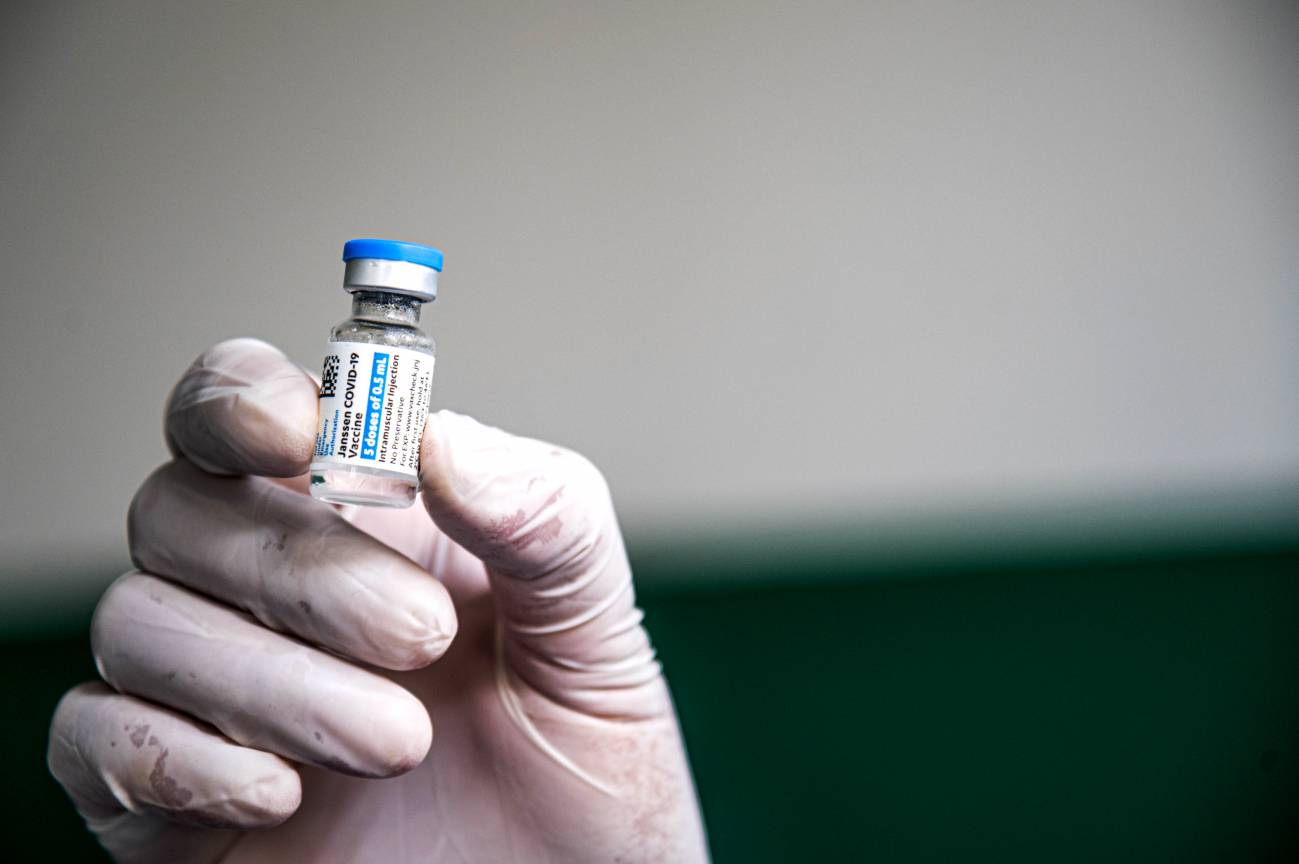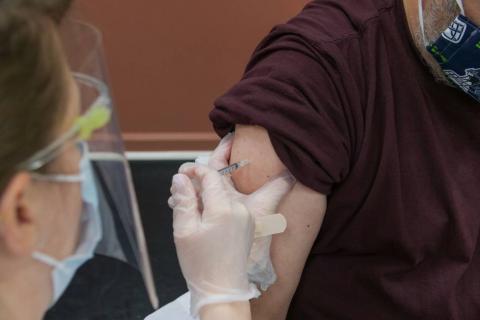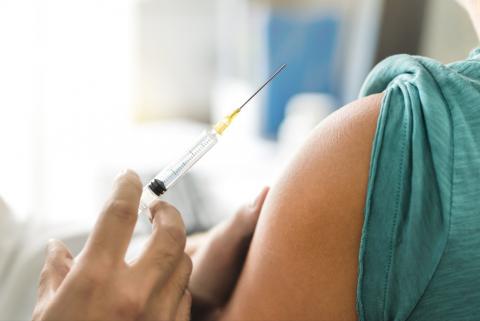Expert reaction to the possibility of giving a second dose of Janssen to those who received the first dose
Johnson & Johnson has just released preliminary data from its two-dose trial in a press release. It shows that the second dose increases the antibody response and also confirms the duration of protection among those who received one dose.

Janssen vaccine. / Dipendra Rokka/SOPA Images.
José Manuel Jiménez Guardeño - segunda dosis Janssen EN
The possible second dose of Janssen's vaccine has been in the air since they started vaccinating. Just look at the fact that the pharmaceutical company started a clinical trial using two doses of the vaccine as early as November 2020.
This should come as no surprise because we have already seen that with all other vaccines, two doses are necessary to obtain better protection. Other adenovirus-based vaccines, such as Astrazeneca and Russia's Sputnik V, use two.
As expected from the results obtained during clinical trials, the data indicate that the effectiveness of Janssen's vaccine in preventing hospitalisations and deaths from covid-19 appears to be lower than that observed with the other two-dose vaccines.
Preliminary results indicate that neutralising antibody levels increase several-fold and protection increases to levels similar to those observed with the other vaccines.
Although these are preliminary results and it is best to wait for the full study data, it seems clear that, although one dose of Janssen's vaccine protects against covid-19, two doses protect better. Therefore, the debate now is whether this improved protection justifies the administration of a second dose or not.
One thing we cannot forget is that vaccines also limit infections and transmission of the virus. Therefore, although the protection obtained with one dose may be less than that obtained with other vaccines, the fact that a large part of the population is vaccinated means that this protection may be sufficient.
At the present time, it seems logical to consider the need to administer a second dose of the Janssen vaccine in order to obtain the maximum possible protection, at least in the most vulnerable people and those in risk groups.
Carmen Álvarez - segunda dosis Janssen EN
Carmen Álvarez Domínguez
Expert in immunology, vaccines and immunotherapy
The data show that the second dose given two to six months after the first dose increases efficacy significantly more. Antibodies increase fourfold [over the first dose] if you give the second dose at two months and twelvefold if you inject it at six months.
The Janssen vaccine had very high efficacy with one dose, but when you give two doses you get 100 per cent protection [against severe cases] after 56 days.
The most important thing is that they see that after six months it also works and that it is even better than just the first dose. This means that you could give the second dose to people who have had the first dose even after such a long time.
Those who have been vaccinated in Spain have been vaccinated less than six months ago and could probably be given the second dose now.
Ignacio J. Molina - segunda dosis Janssen EN
Ignacio J. Molina Pineda
Professor of Immunology and Director of the Department of Biochemistry and Molecular Biology 3 and Immunology at the University of Granada
If you give a second dose, obviously the intensity of the response is going to be greater. The question: do you really need that extra boost in immune response? Most probably not.
With the level of antibodies and cell-mediated immunity you already have, you probably don't need [another dose]. I think we're probably in that situation with the Janssen vaccine.
Sputnik V is the same as Janssen and has a 'lite' version that uses Ad26 (adenovirus 26), just like Janssen, and they say it's also very potent and doesn't need another dose.
As long as there are no indications, and right now there are no indications that a second or third dose is needed, I think the effort has to be put into vaccinating as many people as possible, especially in countries that don't have vaccines.
I think it is much more important that these second and third doses go to countries that have only 1% of the population vaccinated as long as we have no evidence that the immunity that we have achieved in Western countries is declining. It is a global problem and we have to try to reduce infections globally.



